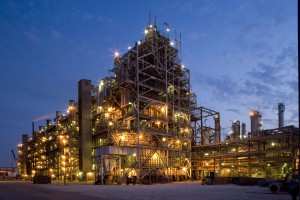LyondellBasell’s decision to move forward with its $2.4 billion (bn) propylene oxide (PO) and tertiary butyl alcohol (TBA) plant in the Houston area, as reported last week, signals a continuation of the petrochemical boom on the U.S. Gulf Coast driven by regional feedstock advantage and access to foreign markets from Texas ports. The American Chemistry Council (ACC) estimates the Texas Gulf Coast accounts for about $70 billion of the $185 billion in petrochemical plants completed since 2010 or potential capital investments announced to 2023.
As of now, more than $86 billion in new projects have been completed in the U.S. or are under construction. LyondellBasell recently completed ethylene expansion projects at the company’s La Porte, Channelview and Corpus Christi sites in Texas, finalizing a multi-year plan to increase the company’s annual ethylene capacity in the U.S. by 2 billion pounds (900,000 tonnes). Additionally, LyondellBasell began construction of a world-scale polyethylene (PE) plant at its La Porte Complex, which utilizes the company’s proprietary Hyperzone PE technology and will more than double that site’s PE capacity to 2 billion pounds (900,000 tonnes) per year upon completion in 2019.
“This world-scale (PO/TBA) project is a key part of our organic growth strategy, which is designed to meet rising global demand for both urethanes and cleaner-burning oxyfuels while creating real, long-term value for our shareholders,” LyondellBasell Chief Executive Bob Patel said. PO is used in the manufacture of bedding, furniture, carpeting, coatings, building materials and adhesives. Feedstock supply is expected to be adequate with many propylene units built during the U.S. first wave of construction projects.
The TBA will be converted to two ether-based oxyfuels: methyl tertiary butyl ether (MTBE) and ethyl tertiary butyl ether (ETBE), high-octane gasoline components, which can reduce emissions from combustion engines. The automobile industry is also expected to benefit from the additional TBA capacity, by way of their use in the tires, fuel additives and lubricants markets.








Leave a Reply
You must be logged in to post a comment.